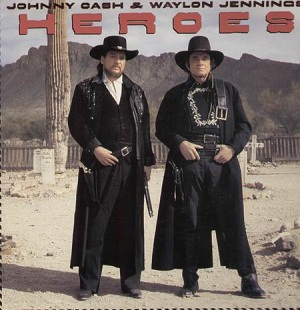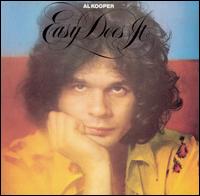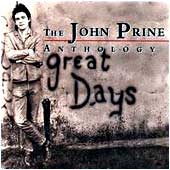
Blood, Sweat & Tears is an American jazz rock music group founded in New York City in 1967, noted for a combination of brass with rock instrumentation. BS&T has gone through numerous iterations with varying personnel and has encompassed a wide range of musical styles. Their sound has merged rock, pop and R&B/soul music with big band jazz.

Jericho is the eighth studio album by Canadian-American rock group the Band. Coming seventeen years after their "farewell concert", it was released in 1993 and was the first album to feature the latter-day configuration of the group, as well as their first release for the Rhino subsidiary Pyramid Records.

Our Kind of Soul is the seventeenth studio album by Hall & Oates, released in 2004. The album contains three original tracks and 14 covers of soul hits of the 1960s, 1970s and 1980s. It is mostly acoustic with some electric guitar and synthesizers. It covers a number of their favorite soul songs.

The Hunger is the fifth studio album by American recording artist Michael Bolton. It was released in 1987 by Columbia Records, his third for the label. It became Bolton's breakthrough album, producing his first two Top 40 hits in the United States, the ballad "That's What Love Is All About" and the Otis Redding cover "(Sittin' On) The Dock of the Bay".

Two Sides of the Moon is the only solo studio album by the English rock musician Keith Moon, drummer for the Who. It peaked at No. 155 on the Billboard 200. The album title was credited to Ringo Starr. Rather than using the album as a chance to showcase his drumming skill, Moon sang lead vocals on all tracks, and played drums only on three of the tracks, although he played percussion on "Don't Worry Baby". The album features contributions from Ringo Starr, Harry Nilsson, Joe Walsh of the Eagles, Jim Keltner, Bobby Keys, Klaus Voormann, John Sebastian, Flo & Eddie, Spencer Davis, Dick Dale, Suzi Quatro's sister Patti Quatro, Patti's bandmates from Fanny Jean Millington and Nickey Barclay, and future actor Miguel Ferrer.

Fast Man Raider Man is the eleventh studio album and a double-album by Frank Black released in 2006.

Rainbow is the 70th album by American country singer Johnny Cash, his last for Columbia Records, released in 1985. "I'm Leaving Now", which was re-recorded 15 years later for Cash's American III: Solitary Man, was released as a single rather unsuccessfully, but the album's signature song is a cover of Kris Kristofferson's "Here Comes That Rainbow Again", which also appeared on Cash's 1995 collaboration with Kristofferson, Willie Nelson and Waylon Jennings - known as The Highwaymen - entitled The Road Goes on Forever, though it was sung solo by Kristofferson on the latter. Also included is a cover of Creedence Clearwater Revival's "Have You Ever Seen the Rain?," from Pendulum. The album also includes the song "Love Me Like You Used To," which was later recorded by fellow country singer Tanya Tucker, and became a country hit for her. Following the release of this album and a duet album with Jennings in 1986, Cash moved to Mercury Records as a result of Columbia's fading interest in his music, though he later returned to Columbia for the second Highwaymen album.

Heroes is a duet studio by American country music singers Johnny Cash and Waylon Jennings, released on Columbia Records in 1986.

Al's Big Deal – Unclaimed Freight is a compilation album by American musician Al Kooper. It was released as a double-LP in 1975.

Easy Does It is the third solo album by American singer-songwriter Al Kooper, recorded and released in 1970 for Columbia Records.

Naked Songs is the sixth album by American singer-songwriter Al Kooper for Columbia Records, released in 1973. Two singles were released in the fall of 1972, preceding the album.

A Possible Projection of the Future / Childhood's End is American musician Al Kooper's fifth album, recorded for and released by Columbia Records in 1972.

Great Days: The John Prine Anthology is a compilation album by American folk singer John Prine, released in 1993.

Headed for the Future is the seventeenth studio album released by Neil Diamond in March 1986 on Columbia Records. The album went to number 20 on the US Billboard 200. Headed for the Future has also been certified Gold in the US by the RIAA.

An American Dream is an album by the Nitty Gritty Dirt Band, released in 1979. The title track was written by Rodney Crowell. The band supported the album with a North American tour.

20/20 is a studio album by George Benson, released on the Warner Bros. record label in 1985. The lead single by the same name reached #48 on the Billboard Hot 100. The album was certified Gold by the RIAA. "You Are the Love of My Life" is a duet with Roberta Flack. It was one of a number of songs used for Eden Capwell and Cruz Castillo on the American soap opera Santa Barbara. Also included on 20/20 is the original version of the song "Nothing's Gonna Change My Love for You" which would later become a smash hit for Hawaiian singer Glenn Medeiros.

Primitive is the sixteenth studio album by Neil Diamond. It was released in 1984 on Columbia Records. Its singles "Turn Around", "Sleep With Me Tonight", and "You Make It Feel Like Christmas" reached numbers 4, 24, and 28, respectively on the Billboard Adult Contemporary singles chart, while "Turn Around" also reached number 62 on the Billboard Hot 100 chart. The album was certified gold by the RIAA on October 5, 1984.

Memphis is the seventeenth studio album by American singer-songwriter Boz Scaggs. It was Scaggs's first solo release since 2008's Speak Low. The album was released on March 5, 2013, by 429 Records. The album has debuted on Billboard 200 at No. 17, and has sold 90,000 copies in the US as of March 2015.

Ooh Child is the fourth studio album by American-Australian singer Marcia Hines. Ooh Child peaked at No. 15 in Australia and produced the top ten single, "Something's Missing ", which peaked at No. 9. It was released digitally in 2020.

Stone Alone is the second solo album by the Rolling Stones' bass guitarist Bill Wyman. It was released in 1976 by Rolling Stones Records. The album reached number 166 on the Billboard 200.




















